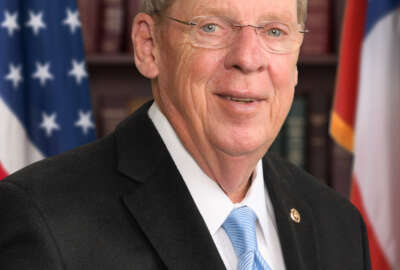
House chair pushing comprehensive budget reform for 2017
Rep. Tom Price (R-Ga.), chairman of the House Budget Committee, said he's working on reforms to the Congressional Budget Act of 1974. The goal is to draft...
Rep. Tom Price (R-Ga.), the chairman of the House Budget Committee, is leading the charge behind reforms to the Congressional Budget Act of 1974, the legislation that he said is the main culprit behind a broken process.
“We’ve been working at this point [in] the budget committee to try to gather ideas, to get bright people who have worked on this — inside and outside of Congress — for a long time, to get their input,” Price said during a Jan. 13 discussion at the Brookings Institution. “My goal is after we get through this budget season, to begin to work through the budget committee in the House, to fashion a piece of legislation that would be a rewrite of the ’74 act.”
No Democrats on his committee have gotten involved in this process yet, he said. The goal is to send a draft of the reform to the new President in 2017.
The 42-year-old act serves as the basic blueprint for today’s appropriations process and created the House and Senate budget committees, in addition to the Congressional Budget Office.
“The Congressional Budget Office, the entity that gives us [and] informs us about budgeting, could be a lot more transparent, could be a lot more responsive to members of Congress,” Price said. “We tie their hands in some ways through the budgeting act, through the manner in which they score and determine how much something costs.”
This comes just a few months after the House and Senate agreed to a conference budget proposal for the first time in 14 years, but not before implementing two continuing resolutions to give themselves more time. Congress set topline figures for fiscal 2016 and 2017 before its Dec. 11 deadline, and both chambers carried appropriations debates well into the month.
President Barack Obama will submit his fiscal 2017 budget next month. Soon after, congressional committees will begin their appropriations processes, which will likely be long and arduous, all over again.
Price provided few details as to what comprehensive budget reform legislation might look like. But Congress and agencies shouldn’t design their budgets around a predetermined outcome, he said. He argued that mandatory spending on programs such as Medicare, Medicaid and Social Security should get a closer look from Congress more often.
Spending on those mandatory programs is approaching three-quarters of the total federal budget, he said.
“The slice of the pie that we control on the discretionary side in the appropriations process just gets smaller and smaller and smaller,” Price said. “So whatever it is that your priority is — the American people’s priority is on the discretionary side — it’s getting squeezed. And it’s getting squeezed because we are not forced to reform the mandatory spending, the automatic side.”
For Price, constant debates over defense spending, for example, proves just how broken the budget process is.
“We ought to define the mission and make certain that the mission is agreed to and accomplishes whatever it is that we as a nation believe ought to occur, and then provide the resources to accomplish that mission,” he said. “That’s one of the primary purposes of the federal government. Right now, we seem to have it backward. We determine how much money we have and then shoehorn the mission into it, and that doesn’t work in many, many ways.”
Copyright © 2024 Federal News Network. All rights reserved. This website is not intended for users located within the European Economic Area.
Nicole Ogrysko is a reporter for Federal News Network focusing on the federal workforce and federal pay and benefits.
Follow @nogryskoWFED





